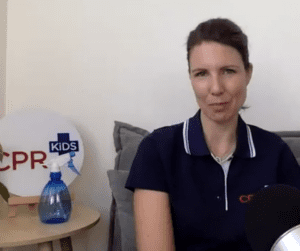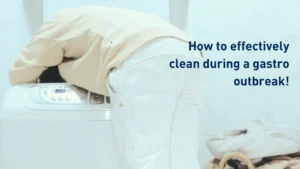
Busting the myths around burns first aid
Butter? Honey? Ice? Milk? Knowing how to correctly treat a burn is vital in the outcome of a burns incident in little ones – join us as we explain myth from fact on burns first aid.

Giving medicine to your baby or toddler can be a scary task – not just because you need to ensure you are doing it correctly, but because it can feel more like wrestling an angry crocodile!
We have put together everything you need to know about giving medicine to your child – and how to make it as stress-free as possible.
Underdosing will make the medication less effective, and overdosing can lead to accidental poisoning. In Australia, one of the most common reasons for accidental poisoning in children under 12 months, occurs as a result of medicines being given incorrectly by a parent or carer.
Each time you buy or administer medicine. Ensure you know the strength in relation to the age recommendation of the medicine and the weight to dosage recommendations.
and compare medicines if your child is being given more than one medicine, to avoid double dosing. Common active ingredients like paracetamol are in many different medicines.
It is important to not give more than the recommended amount for your child’s age. If your child is small or large for their age, seek guidance from a Doctor or Pharmacist.
Use the device that came with the medicine such as a dropper, oral syringe or medicine cup. If the medicine does not come with one, your pharmacist can recommend one. Check to make sure the device has the appropriate markings – be mindful of whether the dosage is a fraction of a ml (0.8 for example).
Including the active ingredient, the amount and when. This helps to monitor what your child has been given and decreases the risk of an accidental double dose or overdose.
Understanding the dosage information on labels, knowing how to correctly use the measuring device and where medicine is stored. This helps to avoid any midnight confusion if your child is suddenly sick!
If you are concerned that your child has been given too much medicine, act immediately by calling the Poisons Information Centre on 13 11 26.
Kids can often worry about taking medicine, as they are concerned about the taste, texture or choking. It is important to be honest with them about the fact that they need to take the medicine, and why.
Giving them a choice of where they would like to sit to take it, or incentives such as a toy or stickers which can help them take the medicine calmly.
Let them practice giving “medicine” to their favorite toy or teddy – play can help alleviate fears.
One strategy that can help, is to have your child sit in your lap, give them a firm cuddle, reassure them that it’s okay, and distract them with a book or a show they enjoy. Try to make it as if it is a part of the normal routine for the day so that they are more comfortable with it.
For babies, wrapping them is a good option to make sure they feel secure and so that you can administer medicine correctly.
With toddlers, use a syringe and pop it to the side of the back of their mouth, and squirt little bots of medicine at a time. This can help to stop them from spitting it back out.
Avoid mixing with food or drink, particularly large amounts or in a bottle. If they only consume some of what you give them, you won’t know what portion of the dose they have received. Some medicines can’t be mixed with certain foods, so check with your pharmacist first.
For more information, visit https://www.nps.org.au/consumers/how-to-give-medicines-to-children#related-video-playlist

Butter? Honey? Ice? Milk? Knowing how to correctly treat a burn is vital in the outcome of a burns incident in little ones – join us as we explain myth from fact on burns first aid.

When your child gets gastro, you may just accept that the entire family is doomed. But there is hope!
What nurses want you to know about making this one resolution.